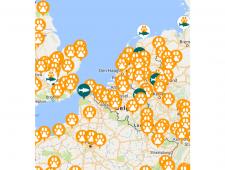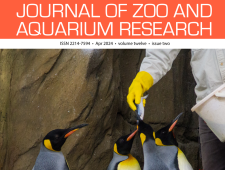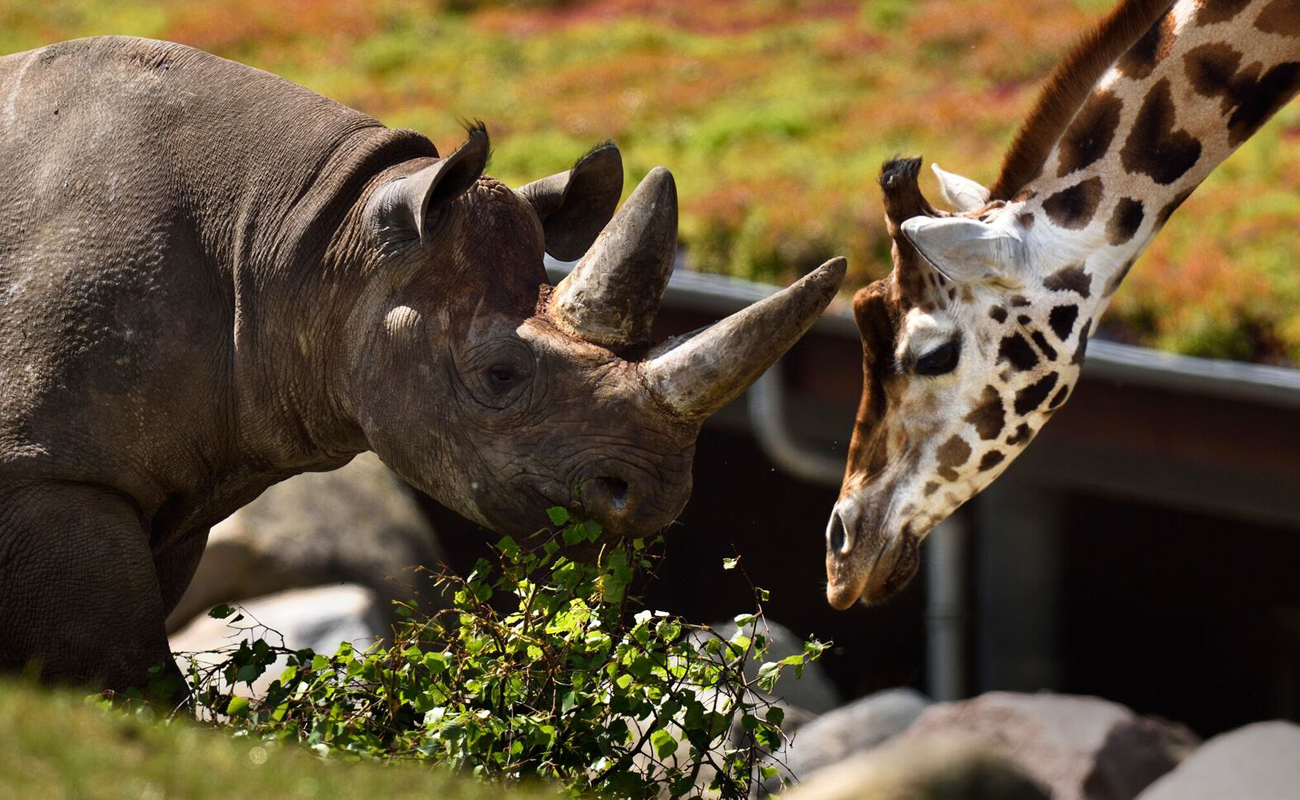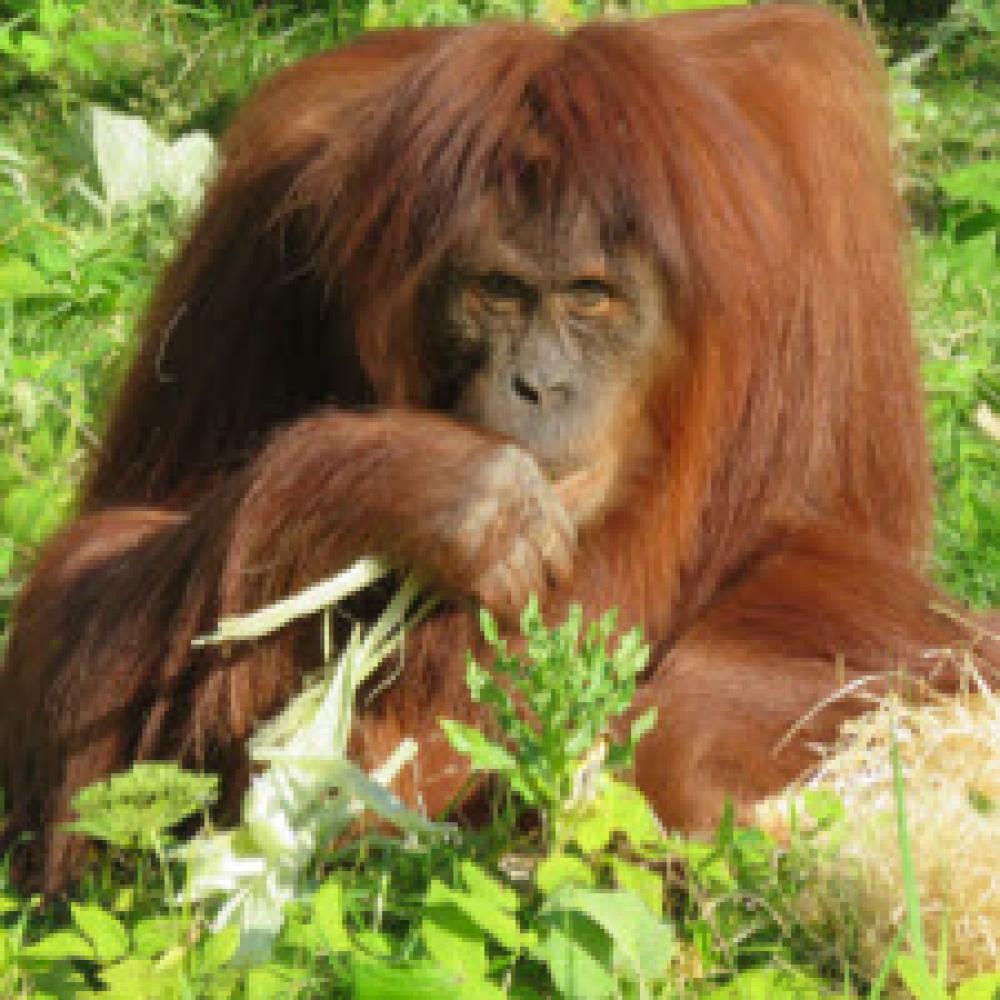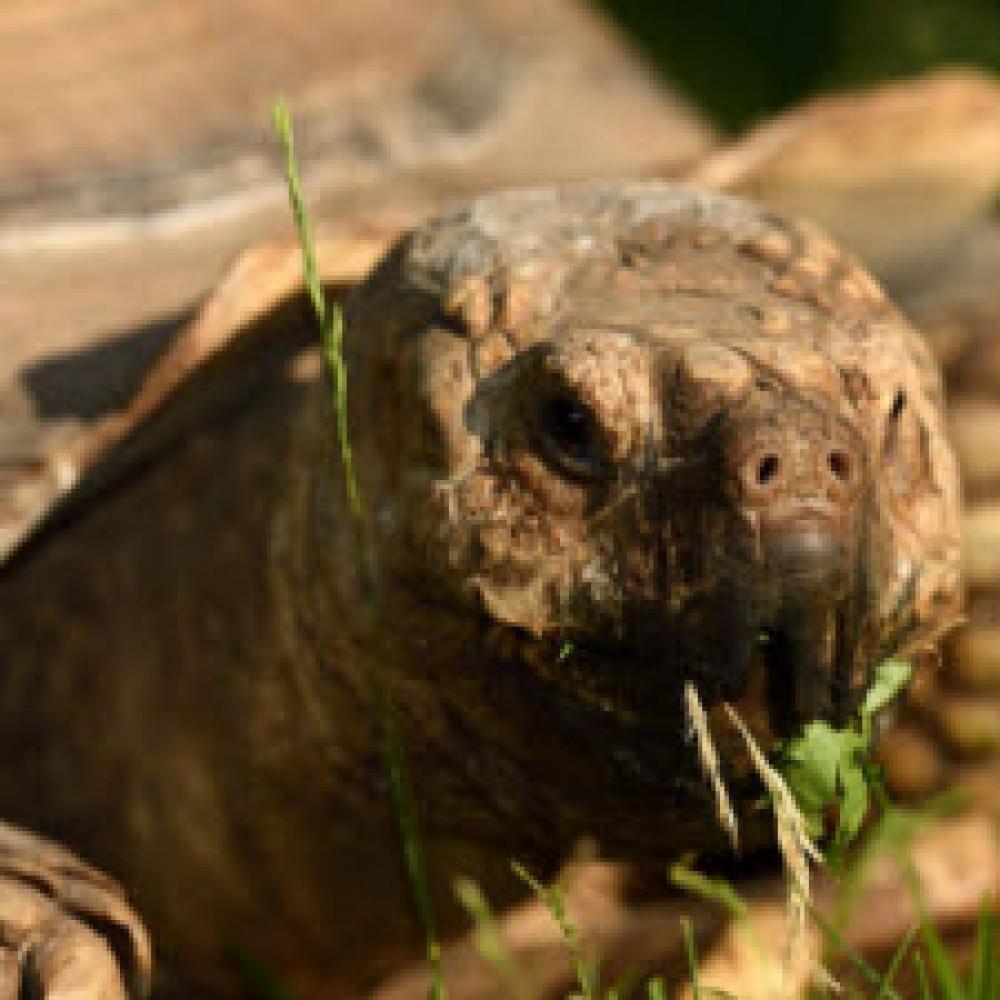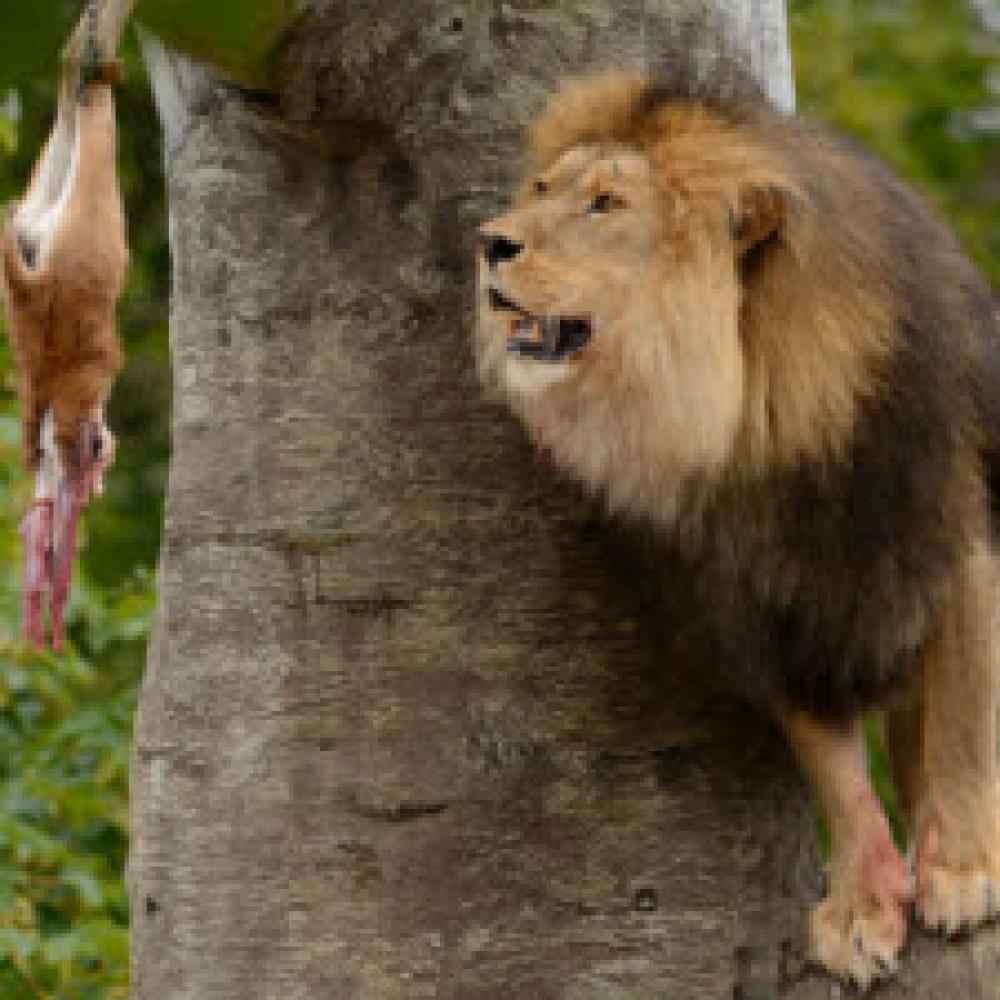The EAZA Nutrition Group (ENG), reporting to the Research Committee, seeks to improve communication and coordination among all those engaged in research, education, or application of comparative (zoo) nutrition, and those requiring nutrition information, chiefly within zoological institutions of Europe. The EAZA Nutrition Group organizes biennial conferences on zoo animal nutrition that are open to anyone interested in comparative and zoo animal nutrition.
The mission statement of the ENG is to promote and support nutrition in zoological institutions as an essential component of their conservation mission.
ENG Funding 2024
The EAZA Nutrition Group is delighted to announce the opening of the application period for the ENG funding. The aim of this fund is to improve communication and coordination among all those engaged in research, education, or application of comparative (zoo/aquarium) nutrition, and those requiring dietary information, chiefly within the zoological institutions of Europe. EAZA Nutrition Group funding is available to any European or West Asian (for other regions, please see the EAZA website) non-profit parties that aim to promote and improve the education, training and/or improved application of comparative nutrition in zoos and aquariums, with priority given to research benefitting multiple EAZA Member institutions.
Criteria for funding
- Prioritization of projects for funding will go to those which:
- Have the widest reach of benefit to animals in human care, and those in charge of this care, across Europe, Western Asia, and beyond.
- Can provide a complete application (see below) with sound supporting evidence for the anticipated impact of the project.
- Under normal working circumstances, if the other criteria are satisfied, then priority will be given to those working with or within EAZA Member institutions.
- Have well written, detailed, and focussed proposals that include preliminary data (where available) and demonstrate good value for money and/or adequately justified costs.
The ENG will not fund individual attendance at training events/conferences or individual student research projects.
Key dates
Please bear in mind the following key dates
- January 2024: application period opens
- 29th April 2024 applications submission date
- May 2024 applications are shortlisted.
- June 2024 results will be announced to applicants
How to apply
Please download the documents available below and fill them in with completion. Send them to lauren.florisson@eaza.net with the subject ENG Fund application before the 29th of April 2024. Only completed applications will be considered.
ENG Working Group Members
The ENG working group membership is for those that are active in the field of animal nutrition i.e., have animal nutrition-based qualifications or training and/or experience (e.g., post graduate degree in animal nutrition) and expertise in zoo animal nutrition and research (research must be ethical and of a high scientific quality). Working group members must have demonstrated an interest and commitment to zoo animal or wildlife nutrition for a proportion of their career, have time availability to participate in working group activities (e.g., meetings, advisory roles etc.) and vote on group steering decisions, ideally regularly attending annual meetings and biennial conferences also. Working Group Member applicants should preferably have an active knowledge of animal nutrition science, both theoretical and applied, and be able to effectively disseminate evidence-based animal nutrition research; supporting up to date animal nutrition and welfare best-practice within the EAZA community and the wider zoo community. Working Group Members ideally represent expertise across a range of subject areas to form a multi-disciplined team and thereby a holistic approach to best practice in zoo animal nutrition (these might include clinical nutrition, feed formulation/manufacture, food composition, hand-rearing and infant diets, nutrient metabolism, availability and requirements, or taxon-specific nutrition, but are not exclusive).
Interested parties can submit an application of interest by sending a completed a Membership form and a cover letter of application/motivation detailing your expertise and experience in zoo animal nutrition (and research), alongside mention of your intentions to join the ENG. Email your application to Lauren Florisson putting 'ENG Membership' in the subject line. Applications are then voted in on agreement by majority from all Working Group members.
ENG Network Members
This membership type is open to all individuals who support the aims of the ENG and have demonstrated interest and commitment to zoo animal or wildlife nutrition, regardless of training or expertise. Preferably you will have a keen interest in animal nutrition science, and support animal nutrition best practice within the EAZA community and the wider zoo community. ENG Network membership offers less time commitment and responsibility than the Working Group membership so may also be suitable for those that wish to be a member of the ENG but do not have the time to commit to full working group membership responsibilities (e.g. voting, advisory roles, committee volunteer). Additionally, the ENG Network has the advantage of a Google Group members area where members can ask questions, get advice, share resources, and develop their knowledge further. The ENG Network also allows a route into the ENG whilst individuals are still developing their knowledge, skills and expertise in the field of animal nutrition, with the possibility of applying for ENG Working Group Membership once these membership criteria are fulfilled. ENG Network members may have more niche expertise across zoological subject areas, allowing for a holistic approach to nutrition including (but not exclusively) animal keeping, veterinary practice, welfare and behaviour science, commercial feed or feeding related manufacturer, TAGS, EEPS, ESBs. Candidates can submit an application to Lauren Florisson by filling in the Membership form.
Join the ENG Community
The EAZA European Nutrition Group is also active on Facebook, why not join the community by visiting the page and following @EAZAnutrition to keep up to date with the latest zoo animal nutrition news and research.
EZNC23
The previous European Zoo Nutrition Conference was hosted by Riga Zoo (Latvia), from 19 to 22 January 2023. The programme booklet can be found here. A special issue of JZAR was published following the presentations at the Riga conference.
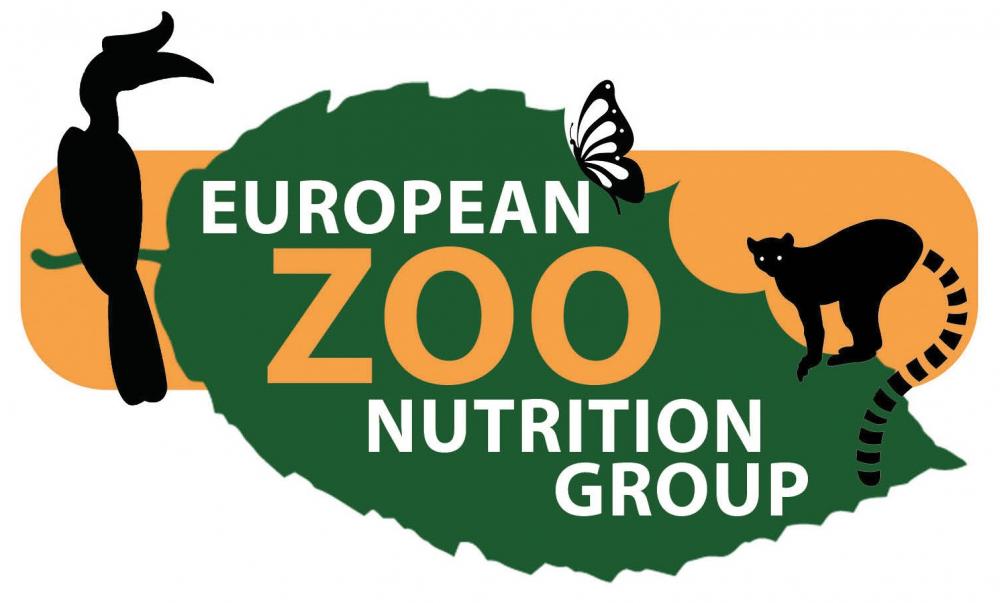
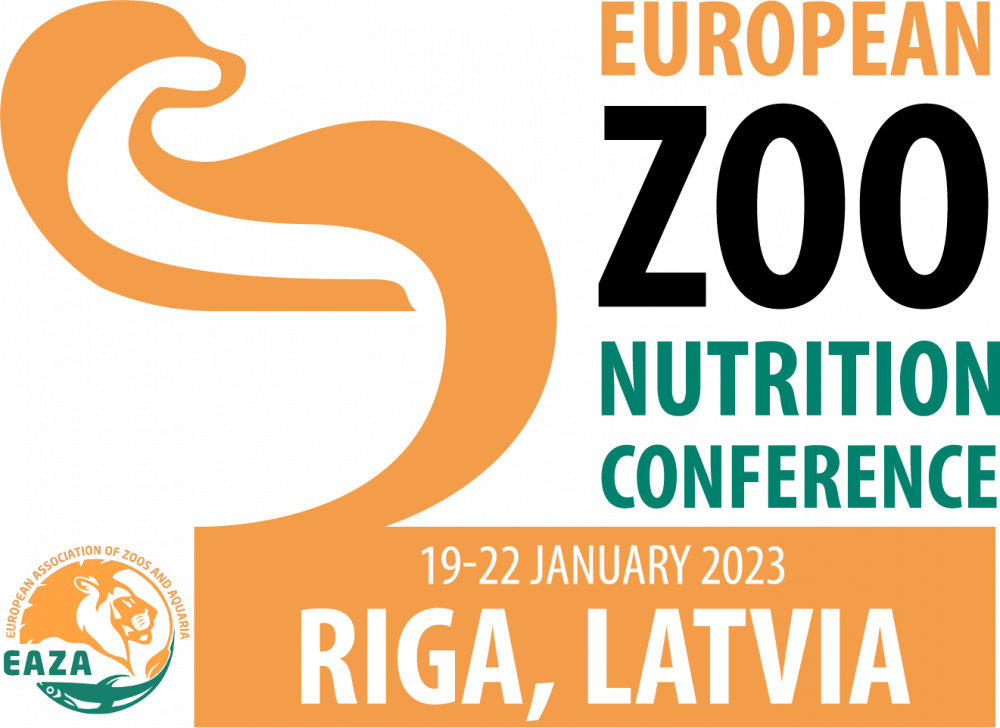
EAZA Nutrition Group News 2019
Read a special nutrition edition from the EAZA Nutrition Group, including the following articles based on the presentations given at the last EAZA Zoo Nutrition Conference, which took place in Marwell in January 2019.
| FOOD FOR THOUGHT: Reporting from the 2019 EAZA Nutrition Conference |
BACK ON THE MENU: Notes from a recent EAZA Nutrition Group meeting |
| CONFERENCE WISDOM: Just three of the many inspiring presentations made at the 2019 Nutrition Conference |
DESIGNER DIET: Finding the right diet for Paignton's giraffes |
| MAKING LIGHT WORK: Providing full-spectrum lighting for the animals in our care |
CHEWING IT OVER: Why dental anatomy affects an elephant's eating habits |
| A DIET FOR INSECTIVORES: A species-specific approach to feeding insectivores |
CREATING A BALANCED DIET: How to improve the daily diet of zoo-kept ruminants |
| STORAGE SOLUTIONS: Alternative techniques for storing browse |
WHY SIZE MATTERS: Studying the effects of pellet size on lemur eating behaviour |
| BROWSE: FRESH OR FROZEN?: Is frozen browse as nutritious as fresh? |
A NEW VIEW ON FEEDING: Why making animals work for their food can improve their welfare |
| FEEDING HABITS: The effects of diet and food presentation on flamingos | FOOD FOR AGED ANIMALS: Using diet to improve the welfare of older zoo animals |
| A PLACE IN THE SUN: Studying primates' need for vitamin D | |
Download your copy, or flip through the pages by clicking here
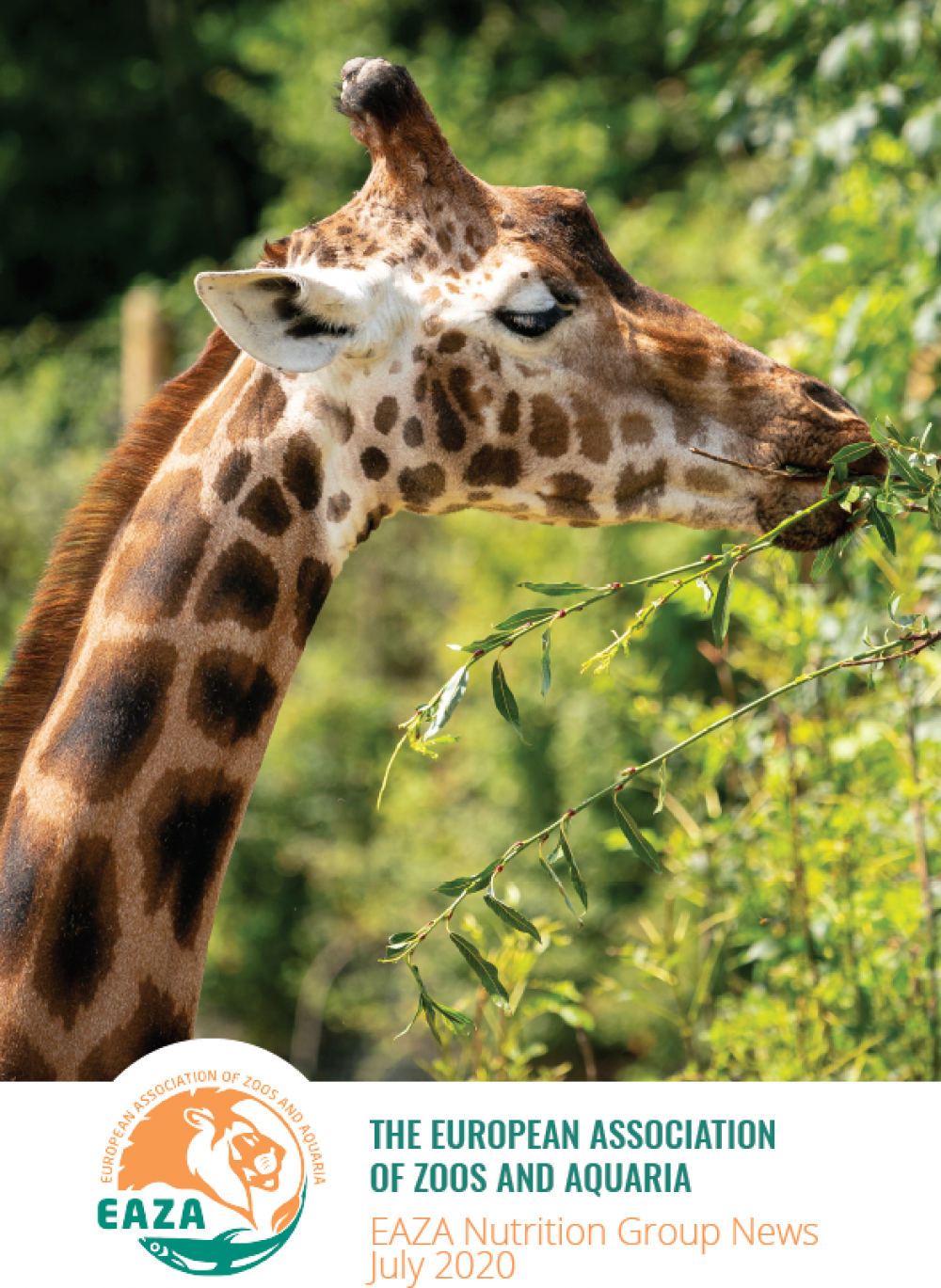
EAZA Nutrition Group News 2017
Articles based on the presentations given at the EAZA Zoo Nutrition Conference in 2017, which took place in Liberec, Czech Republic.
| MORE FIBRE, LESS SUGAR: How dietary changes can affect primate health and welfare |
THE ROTIFER SOLUTION: An insight into the successful feeding of ornamental fish |
| NUTRITION FOR HEALTHY CLAWS: The connection between diet and claw health in takin |
A DIET FOR DRAGONS: How revising the diet of the sea dragon can reduce mortality during transition |
| GOING FRUIT-FREE: How reducing fruit intake can alter lemur behaviour |
KITCHEN SECRETS: The advantages of a centralised nutrition centre in zoos |
| PREVENTING DIETARY DRIFT: Paignton Zoo shares the results of its research into dietary drift |
SOLVING THE RHINO PROBLEM: Why the black rhino needs special dietary care |
| INSIDE THE ZOO KITCHEN: How to run an efficient and cost-effective kitchen |
BEAR NECESSITIES: Investigating the link between dental health and oral pH |
| NUTRITION MATTERS: A report from the Ninth European Zoo Nutrition Conference |
Download your copy, or flip through the pages by clicking here

Resources
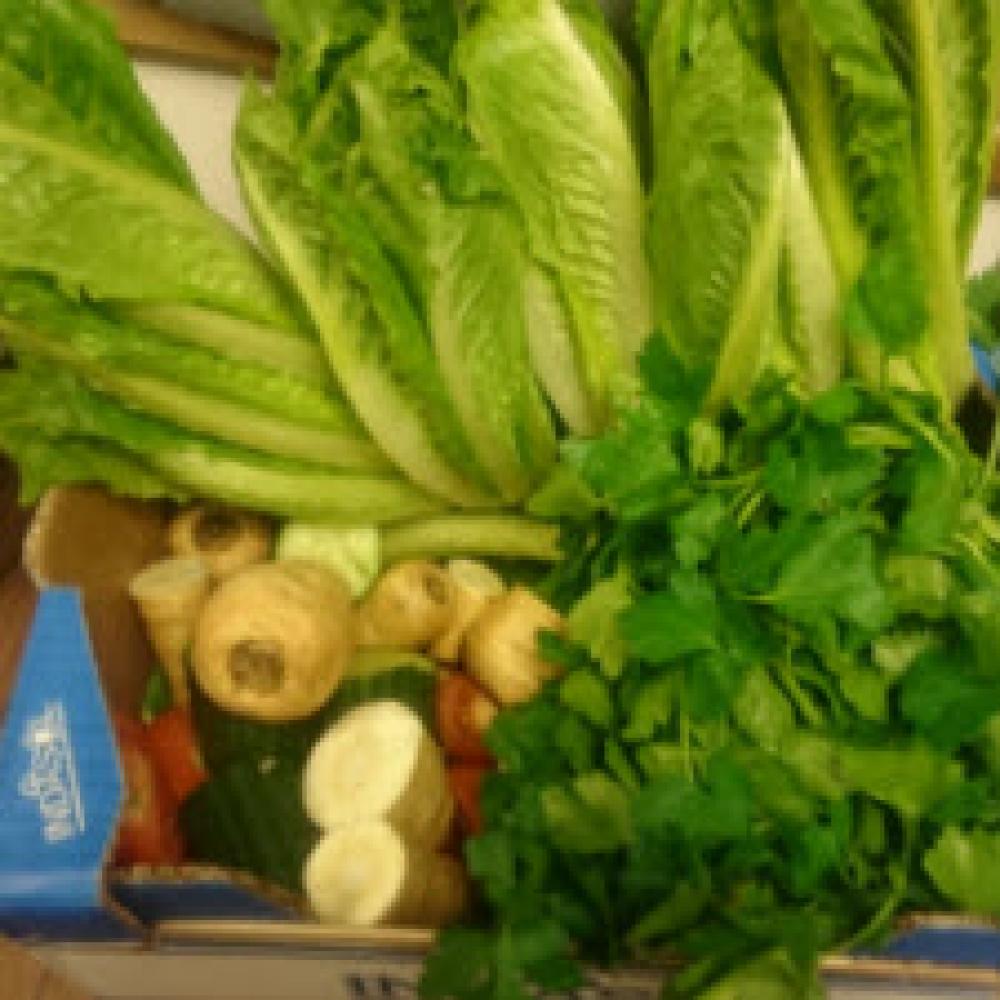
How can I get get involved in zoo and wildlife nutrition? (UNDER CONSTRUCTION)
Programmes and abstracts
European Zoo Nutrition Conferences (Programmes and abstracts)
- 11th European Zoo Nutrition Conference - Online (2021)
- 10th European Zoo Nutrition Conference - Marwell (2019)
- 9th European Zoo Nutrition Conference - Liberec (2017)
- 8th European Zoo Nutrition Conference - Arnhem (2014)
- 7th European Zoo Nutrition Conference - Zurich (2012)
- 6th European Zoo Nutrition Conference - Barcelona (2010)
- 5th European Zoo Nutrition Conference - Chester (2008)
- 4th European Zoo Nutrition Conference - Leipzig (2005)
- 3rd European Zoo Nutrition Conference - Antwerp (2003)
- 2nd European Zoo Nutrition Conference - Marwell (2001)
- 1st European Zoo Nutrition Conference - Rotterdam (1999)
International Symposium on Pet Bird Nutrition
To order contact: josef.kamphues@tiho-hannover.de
ZOOQUARIA - Zoo Nutrition Special Editions
Zoo Animal Nutrition Books
These books gather together the scientific contributions to the European Zoo Nutrition Conferences. The books are now out of print, but second-hand and library copies are available.
- Zoo Animal Nutrition I (2000) (out of print) - Edited by J. Nijboer, J.-M. Hatt, W. Kaumanns, A. Beijnen, U. Gansloßer (eds.). Filander Verlag, Fürth ISBN-10: 3-930831-29-5
- Zoo Animal Nutrition II (2003) (out of print) - Edited by A. Fidgett, M. Clauss, U. Gansloßer, J.-M. Hatt, J. Nijboer. Filander Verlag, Fürth ISBN-10: 3-930831-51-1
- Zoo Animal Nutrition III (2006) (out of print) - Edited by A. Fidgett, M. Clauss, K. Eulenberger, J.-M. Hatt, I. Hume, G. Janssens, J. Nijboer. Filander Verlag, Fürth ISBN-10: 3-930831-57-0 / ISBN-13: 978-3-930831-57-9
- Zoo Animal Nutrition IV (2009) (out of print) - Edited by M. Clauss, A. Fidgett, G. Janssens, J.-M. Hatt, T. Huisman, J. Hummel, J. Nijboer, A. Plowman. Filander Verlag, Fürth ISBN-13: 978-3-930831-72-2
Useful links
The EAZA Nutrition Group has selected a list of relevant useful websites.
Zoo Animal Nutrition
NAG Online - A list of AZA groups that have provided information to the Nutrition Advisory Group about their husbandry manuals, some including feeding guidelines
Wiley-Blackwell Publishing - Search for nutrition related books and journals. Most articles viewable online for free.
Nutritional Compositions
USDA National Nutrient Database - Search the USDA National Nutrient Database online. From this page there is a link to also view reports on foods by individual nutrients, e.g. calcium.
FAO International Food Composition Tables - A summary of human food tables, many of which are online.
National Food Institute Denmark - Danish food table: very clear in English and of course in Danish.
Nutrient Requirements
National Academies Press - A set of nutrient requirement books, possible to read each online for free, a page at a time.
National Academies - The National Resource Council Committee on Animal Nutrition produces a series of reports on the 'nutrient requirements of domestic animals'.
DEFRA UK - Guidelines for nutrient requirements in the United Kingdom.
Nutrition Software available
Busch Gardens Animal Diet Database - freely available.
Tracks - has a diet module integrated into their collection management software, requires payment.
Zootrition – a database and tool for dietary design and nutritional analysis, requires payment.
Food4Zoos - kitchen/diet management software, which requires a subscription.
Societies and Proceedings
NAG Online - Conference proceedings from the Nutrition Advisory Group: papers from the 1st and 2nd conferences are available to download; hard copies of proceedings from meetings in 1999, 2001 & 2003 are available to purchase. Contents can be previewed online.
International Zoo Yearbooks - International Zoo Yearbooks 6, 16 and 39 have special sections on nutrition.
Comparative Digestive Anatomy resource
Miscellaneous
The Auk - All issues of The Auk from 1880 to 1999 are free online
Highwire Press - A repository of high impact, peer-reviewed content, with 1269 journals and 6 million full text articles from over 140 scholarly publishers.
Integrated Zoo Nutrition
Dr. Ellen S. Dierenfeld and Dr. Joeke Nijboer have started an initiative to evaluate zoo nutrition programs and databases that are used in zoological collections and aquaria. Currently, the programs and databases used are not linked to each other universally, which prevents optimizing their use and performance among the zoo sector, including for the communication of best feeding and dietary practices amongst the zoo community. They suggest that an integrated web-based system, combining nutritional assessment information with feeding management logistics, deliverable through multiple platforms and languages is the answer and they have begun working towards this goal. However, they require help to accomplish this task (as mentioned in the document Integrated Zootrition and explained in this presentation) and so are looking for volunteers that can offer support whether in time, skill, or administrative support. Please contact them by email at Integratedzoonutrition@gmail.com

